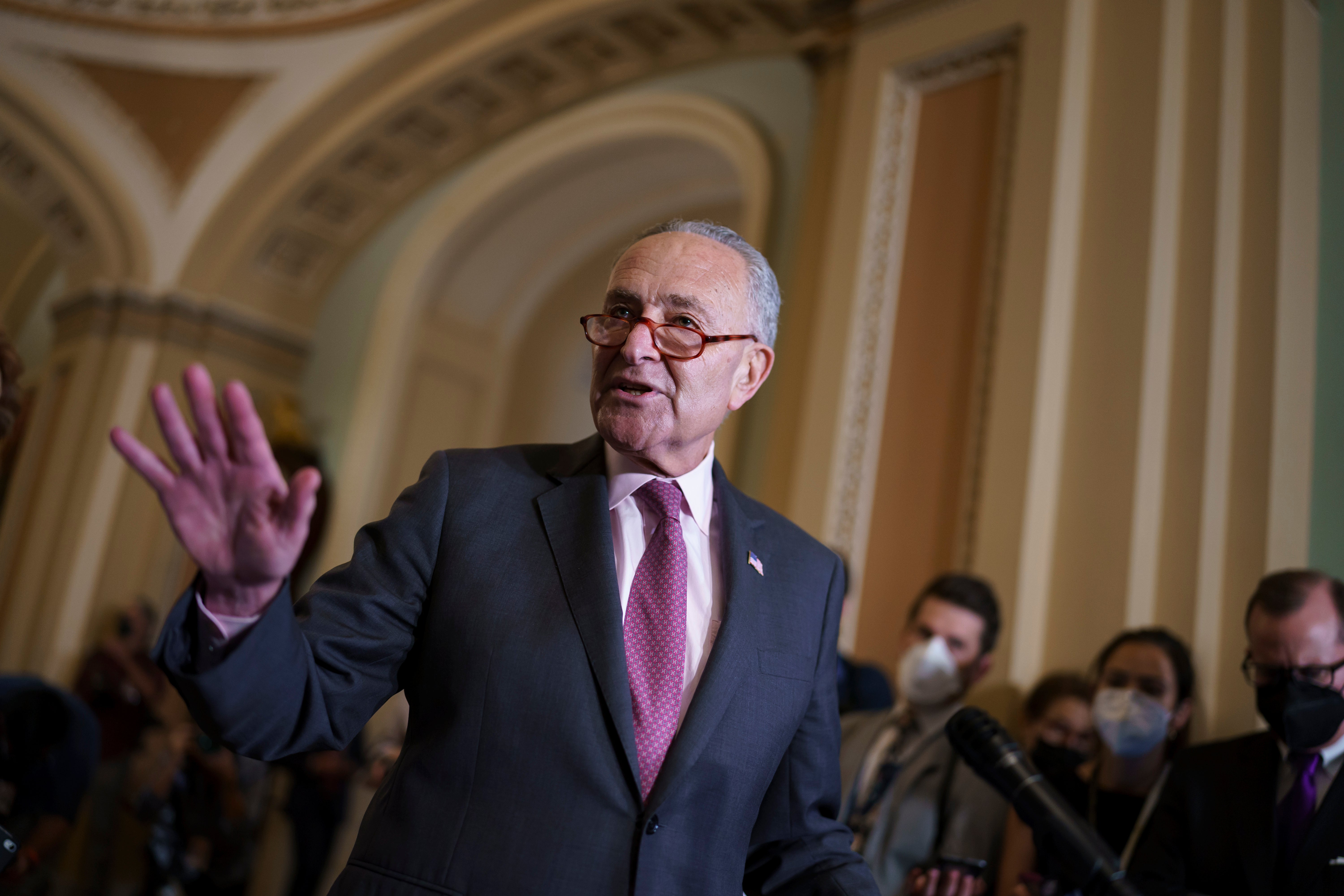Congress moves to avert partial government shutdown
Congress is moving to avert one crisis while putting off another

Your support helps us to tell the story
From reproductive rights to climate change to Big Tech, The Independent is on the ground when the story is developing. Whether it's investigating the financials of Elon Musk's pro-Trump PAC or producing our latest documentary, 'The A Word', which shines a light on the American women fighting for reproductive rights, we know how important it is to parse out the facts from the messaging.
At such a critical moment in US history, we need reporters on the ground. Your donation allows us to keep sending journalists to speak to both sides of the story.
The Independent is trusted by Americans across the entire political spectrum. And unlike many other quality news outlets, we choose not to lock Americans out of our reporting and analysis with paywalls. We believe quality journalism should be available to everyone, paid for by those who can afford it.
Your support makes all the difference.Congress is moving to avert one crisis while putting off another with the Senate poised to approve legislation that would fund the federal government into early December.
The House is expected to approve the measure following the Senate vote Thursday, preventing a partial government shutdown when the new fiscal year begins Friday.
Democrats were forced to remove a suspension of the federal government's borrowing limit from the bill at the insistence of Republicans. If the debt limit isn't raised by Oct. 18, the country would likely face a financial crisis and economic recession, says Treasury Secretary Janet Yellen. Republicans say Democrats have the votes to raise the debt ceiling on their own, and Republican leader Mitch McConnell is insisting that they do so.
But the most immediate priority facing Congress is to keep the government running once the current fiscal year ends at midnight Thursday. The bill's expected approval will buy lawmakers more time to craft the spending bills that will fund federal agencies and the programs they administer.
Meanwhile, Democrats are struggling over how to get President Joe Biden s top domestic priorities over the finish line. Those include a bipartisan infrastructure bill that contains $550 billion in new spending for roads, bridges, broadband and other priorities, as well as a $3.5 trillion slate of social, health and environmental programs.
“With so many critical issues to address, the last thing the American people need right now is a government shutdown," said Senate Majority Leader Chuck Schumer, D-N.Y.
Schumer said the stopgap spending legislation will also provide aid for those reeling from Hurricane Ida and other natural disasters as well as funding to support Afghanistan evacuees from the 20-year war between the U.S. and the Taliban.
Action in the final hours to avoid a partial government shutdown has become almost routine, with lawmakers usually able to fashion a compromise. The funding bill was slowed this time by disagreement over allowing the government to take on more debt so that it could continue to meet its financial obligations. Currently the borrowing cap is set at $28.4 trillion.
The U.S. has never defaulted on its debts in the modern era, and historically both parties have voted to raise the limit. Democrats joined the Republican Senate majority in doing so three times during Donald Trump’s presidency. This time Democrats wanted to take care of both priorities in one bill, but Senate Republicans blocked that effort Monday.
Raising or suspending the debt limit allows the federal government to pay obligations already incurred. It does not authorize new spending. McConnell has argued that Democrats should pass a debt limit extension with the same budgetary tools they are using to try to pass a $3.5 trillion effort to expand social safety net programs and tackle climate change.
“There is no tradition of doing this on a bipartisan basis. Sometimes we have and sometimes we haven’t,” McConnell told reporters about past debt ceiling increases.
House Democrats complained about the steps they were being forced to take as they approved a standalone bill late Wednesday that would suspend the debt ceiling until December 2022. That bill now heads to the Senate, where it is almost certain to be blocked by a Republican filibuster.
“You are more interested in punishing Democrats than preserving our credit and that is something I’m having a real tough time getting my head around,” House Rules Committee Chairman Jim McGovern, D-Mass., told Republicans. “The idea of not paying bills just because we don’t like (Biden’s) policies is the wrong way to go.”
But Republicans were undaunted. They argued that Democrats have chosen to ram through their political priorities on their own, and thus are responsible for raising the debt limit on their own.
“So long as the Democratic majority continues to insist on spending money hand over fist, Republicans will refuse to help them lift the debt ceiling," said Rep. Tom Cole, R-Okla.
McGovern said Republicans ballooned the debt under Trump and now are washing their hands of the consequences.
“Republicans have now rediscovered the issue of the debt," McGovern said. "Where the hell were you the last four years?"
The Treasury has taken steps to preserve cash, but once it runs out, it will be forced to rely on incoming revenue to pay its obligations. That would likely mean delays in payments to Social Security recipients, veterans and government workers, including military personnel. The Bipartisan Policy Center, a think tank, projects that the federal government would be unable to meet about 40% of payments due in the several weeks that follow.
___
Associated Press writer Brian Slodysko contributed to this report.
Subscribe to Independent Premium to bookmark this article
Want to bookmark your favourite articles and stories to read or reference later? Start your Independent Premium subscription today.